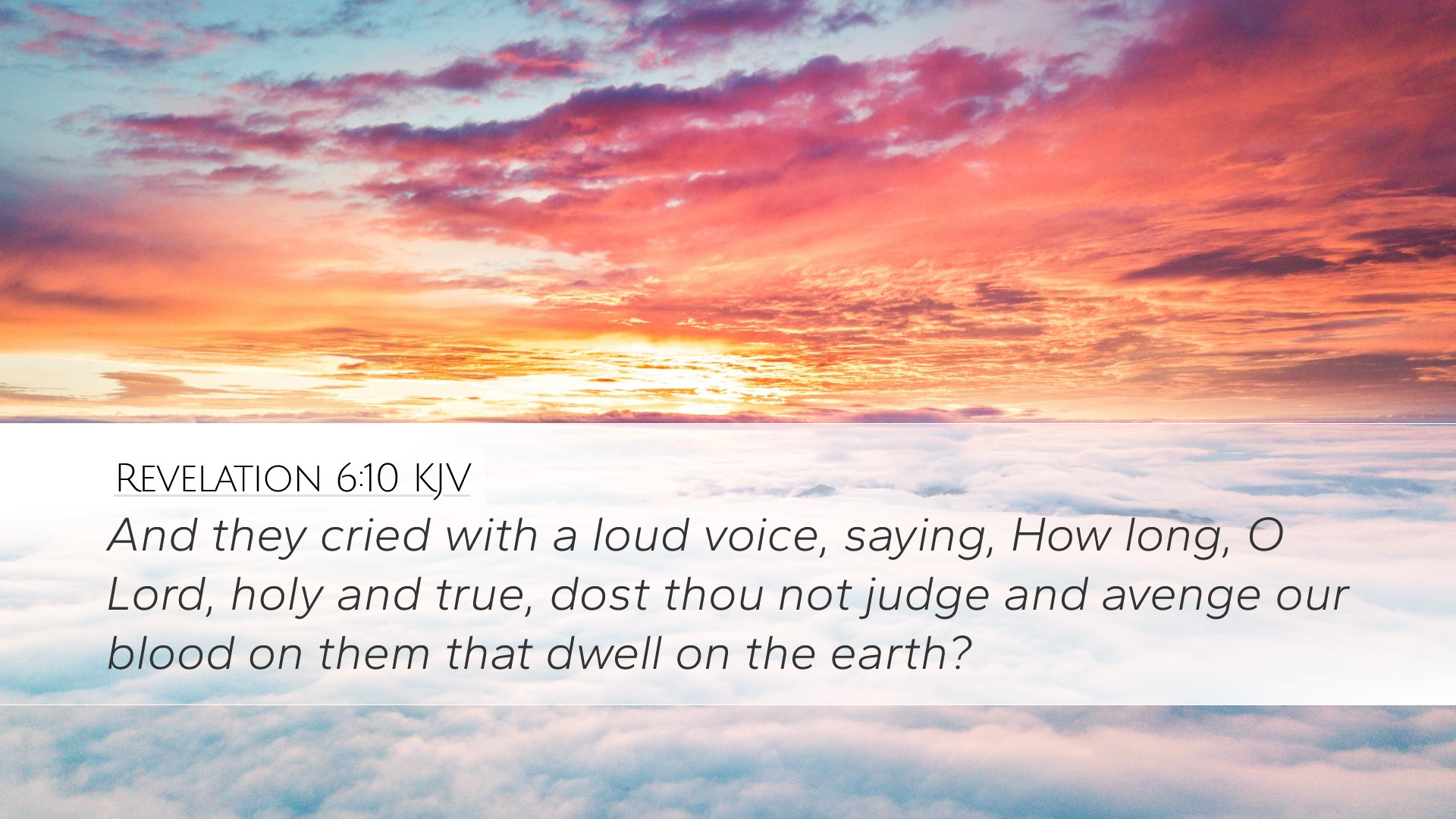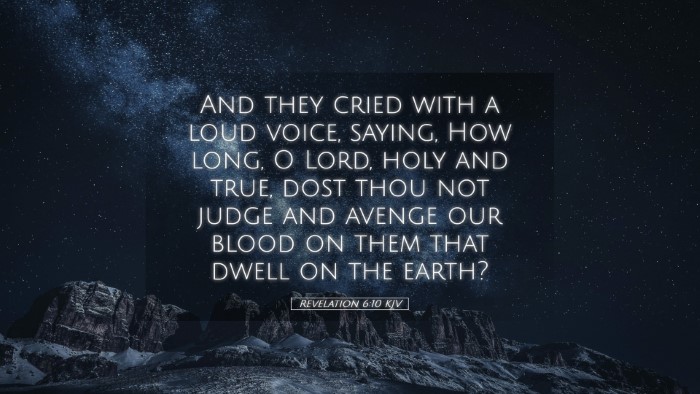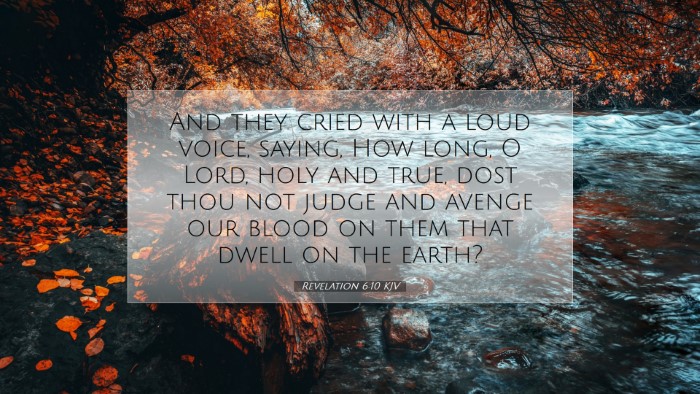Commentary on Revelation 6:10
Verse Text: "And they cried with a loud voice, saying, How long, O Lord, holy and true, dost thou not judge and avenge our blood on them that dwell on the earth?"
Contextual Overview
Revelation 6:10 occurs within the framework of the opening of the seals on the scroll held by the Lamb, symbolizing profound spiritual realities unfolding in the eschatological narrative.
Significance of the Seals
The seals represent events that transpire in the last days, portraying God’s judgment and the trials faced by His people. As each seal is broken, a deeper understanding of divine justice and human suffering emerges.
Insights from Commentary
Matthew Henry's Perspective
Matthew Henry emphasizes the earnestness and desperation of the martyrs’ cry. They appeal to God regarding the delay in judgment and retribution for their suffering.
- Recognition of Martyrdom: Henry highlights that the souls under the altar symbolize those who have died for their faith. Their sacrifice indicates the honor bestowed upon them in the heavenly realm.
- Questioning Delay: The cry “How long?” reflects the deep yearning for divine justice. Henry notes that faithful believers often grapple with feelings of abandonment and impatience in the face of earthly trials.
- The Holiness of God: By addressing God as "holy and true," the martyrs acknowledge His perfect nature and the assurance that justice will be served.
Albert Barnes' Insights
Albert Barnes sheds light on the theological implications of this verse, particularly focusing on the martyrs' desire for vindication.
- Nature of Appeals: Barnes articulates that the plea for vengeance is not rooted in personal vendetta; rather, it emerges from a desire for God's righteousness and glory to be manifested.
- Moral Order: The verse reveals a profound truth about God's moral governance of the world. The martyrs’ inquiry serves as a reminder that God's justice operates on a divine timetable that may not align with human expectations.
- Encouragement to Believers: Barnes encourages believers to trust that God does not overlook injustices. Their endurance amidst trials will be ultimately rewarded.
Adam Clarke's Analysis
Adam Clarke approaches the verse with a focus on the emotional state of the martyrs, reflecting on the human experience of suffering and divine timing.
- Suffering and Glory: Clarke notes that the martyrs understand that their suffering on earth will lead to glory in heaven. Their cries are not merely for vengeance but reflect an understanding of divine justice in a larger redemptive framework.
- Symbolism of the Altar: The altar symbolizes the place of sacrifice and the acknowledgment of Christ’s redemptive work. Clarke interprets their positioning under the altar as significant, indicating their close association with Christ’s sacrifice.
- Spiritual Intercession: Clarke highlights the role of these martyrs as intercessors in heaven, representing the collective voice of persecuted believers throughout history.
Theological Reflections
This verse not only encapsulates the essence of martyrdom and divine justice but also raises important theological questions about suffering, the character of God, and the hope of vindication for believers.
- The Problem of Evil: Believers often wrestle with the tension of evil in the world; Revelation 6:10 provides a biblical framework for understanding that God's timing is purposeful, sustaining faith amidst suffering.
- The Assurance of Justice: The martyrs' cry serves as a reminder that God's justice will ultimately prevail, bringing comfort to believers who face persecution.
- Hope and Perseverance: The passage encourages believers to maintain hope and perseverance, reinforcing the belief that even in suffering, God is present and active.
Conclusion
Revelation 6:10 is a profound cry from the martyrs, reflecting not only their personal anguish but also serving as a universal declaration of God's ultimate justice. The insights from Matthew Henry, Albert Barnes, and Adam Clarke enrich our understanding of this poignant scripture, encouraging believers to await God's perfect timing with steadfast faith.


